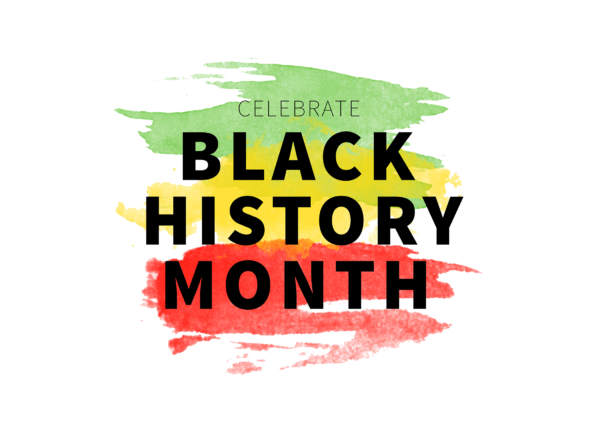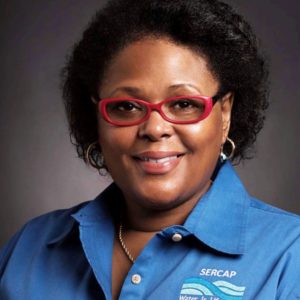A Story of Hope


Have you ever known or met a person that grew up with the odds stacked against them and wondered – how is that person going to make it? Perhaps a person that grew up in a poor, single parent home? Or perhaps a person who was left to defend themselves as a child, plus had to shoulder the responsibility of taking care of a younger sibling?
Today, I’d like to share a special journey with you. This is the life journey of Hope Florence Anastasia Davis Cupit. That’s quite a mouthful, isn’t it? Ms. Hope, as many lovingly call her, was born in the late 1960s to a teenage mother. Ms. Hope is an African American who grew up in Virginia. The odds were stacked against her: poor black woman, single-parent home, and responsible for taking care of a younger sibling.
Ms. Hope’s father was not a part of her life. In fact, he enlisted in the military and moved to Germany. He would reappear in Ms. Hope’s life every decade to say hello, and then would disappear again. Not having a father made Ms. Hope feel half-empty and depressed as a child. She realized that if she is going to make her life better, she needed to make peace with the past and focus on her future. Happily, at the age of 12 her life turned around when she was finally introduced to her paternal grandparents. They were wealthy, and took their “new” granddaughter under their wings and introduced her to the worlds of music, private schools, travel, and many other luxuries in life. They opened her eyes to a world she had never experienced before.
Ms. Hope didn’t forget those loved ones that had been with her since childhood, and they too played a major role in her development and self-drive. She always wanted to advocate for those without a voice or a platform, and she started learning how to be a voice for others at a young age. Now that she had a support system to help catapult her onto a path of success, she didn’t want to be sucked into the repeat cycle of living in poverty like some of her relatives. The rite of passage she had witnessed most of childhood was to 1) have a baby, 2) get a free check, and 3) live in the projects. That was not the life for her. She was going to college and wanted to become a registered nurse. Ms. Hope was to first person in her immediate family to attend college.
Let’s fast-forward to the campus of James Madison University, whereupon arrival Ms. Hope knew this would be the place that would lay the foundation for her future success. Ms. Hope actually did not earn a nursing degree but found her true calling in accounting. After graduation, she landed a job with a regional CPA firm located in Roanoke, Virginia, where her main task was completing audits. She audited many nonprofit organizations throughout the state of Virginia. One such nonprofit was Virginia Water Project. This particular client was one of intrigue because the books were so complicated. She always remembered that about this organization.
Ms. Hope was so talented in the accounting field, that one of her clients approached her about working for them, and she accepted the position. Later, she became a financial analyst for a major nonprofit hospital system, and that is where she realized not all nonprofits are the same. She eventually left the hospital and landed a job at the Virginia Water Project, her former intriguing client, now known as Southeast Rural Community Assistance Project (SERCAP, Inc).
She was SERCAP’s Controller, and later became the President & CEO for the organization. Her various roles at SERCAP brought Ms. Hope back to her roots and fulfilled her dream of helping those that needed a voice and a platform. She has now been with SERCAP, Inc. for over 14 years. She loves her job, working with people that remind her of how she grew up, and having the blessings of a hand up and not a handout. At SERCAP, Ms. Hope is an advocate for those without a voice.
As President & CEO of SERCAP, Ms. Hope also sits on the Board of Directors for the Rural Community Assistance Partnership (RCAP). When Ms. Hope arrived in 2009 as an RCAP board member she was fortunate to be among many experienced and worldly people with a wealth of knowledge. At that time Robert Stewart was the Executive Director of RCAP. The mission of RCAP is to “Improve the quality of life in rural America.” Serving on the RCAP board is very important to Ms. Hope. She lives in a rural area and can relate to many of the issues facing the people served by RCAP. The RCAP Board of Directors strategically plans how to improve the lives of rural Americans. Some of the most prominent issues currently being served by the RCAP board are the lack of water/wastewater infrastructure in rural America, economic development, and broadband internet service. Ms. Hope’s involvement with RCAP has expanded her skill sets, as she learns from those around her doing great work. It is here where she has grown the most and seen the greatest success in her career.
As you may have realized by now, this story is about me: Mrs. Hope F. Cupit, President & CEO of SERCAP. I am Hope Florence Anastasia Davis Cupit. Again, isn’t that a mouthful? During the month of February, as we celebrate Black History Month, it is an honor to share my life experiences and successes with you. I want to leave you with the parable below. If it were not for my safety net, which comprised members of my family, my neighbors, and volunteers who took an interest in me, I would not be where I am today. Enjoy the parable and also please know you too can make a difference in a person’s life. I encourage you to study all history, especially black history. Please remember that history should be read and studied every day of the year so that we do not repeat mistakes from the past.
The Farmer Parable
There was a farmer who grew excellent quality corn. Every year he won the award for the best grown corn. One year a newspaper reporter interviewed him and learned something interesting about how he grew it. The reporter discovered that the farmer shared his seed corn with his neighbors. “How can you afford to share your best seed corn with your neighbors when they are entering corn in competition with yours each year?” the reporter asked.
“Why sir,” said the farmer, “Didn’t you know? The wind picks up pollen from the ripening corn and swirls it from field to field. If my neighbors grow inferior corn, cross-pollination will steadily degrade the quality of my corn. If I am to grow good corn, I must help my neighbors grow good corn.”
So is with our lives…Those who want to live meaningfully and well must help enrich the lives of others, for the value of a life is measured by the lives it touches. And those who choose to be happy must help others find happiness, for the welfare of each is bound up with the welfare of all…
